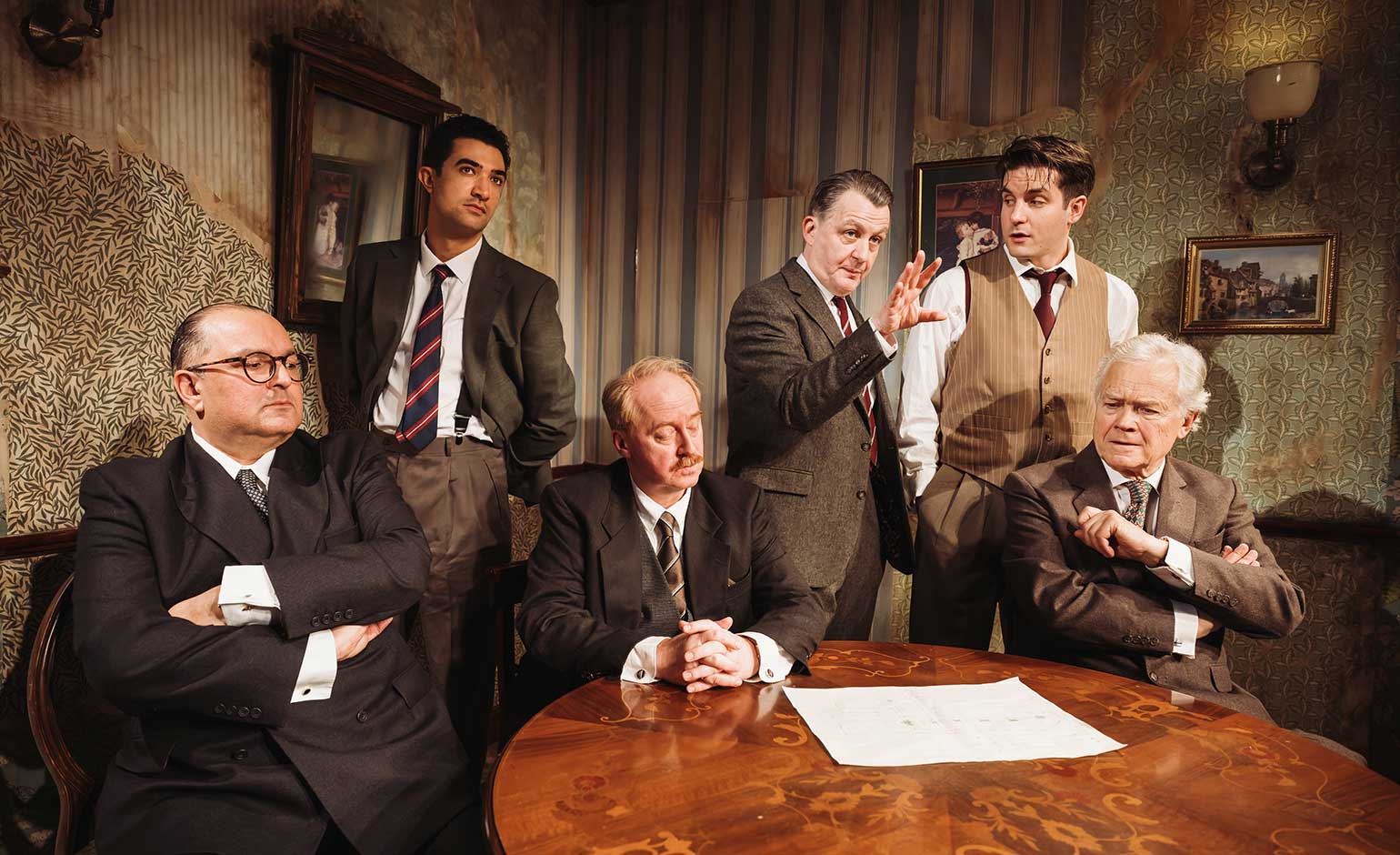Direct from London, this new play by Katherine Moar, directed by Stephen Unwin, is inspired by true events.

The cast of Farm Hall | Photo © Alex Brenner
The fascinating history of Farm Hall dramatises the thrilling story of Operation Epsilon: one of the unexplored episodes of World War Two.
It is the summer of 1945: Hitler is dead, but war in the Pacific rages on. The British government has detained six of Germany’s most gifted nuclear scientists – including three Nobel Prize winners – at Farm Hall, a stately home in Cambridgeshire.
Their conversations were recorded and form the basis for this production.
Bored, intelligent and morally challenged the scientist were held for seven months at Farm Hall.
The production is hugely revealing to anyone. I am sure scholars will revel in the intricacies but the retelling of the story reflects a definitive moment in the history of the world as we know it.
The group were collectively known as the Uranverein (Uranium Club) and were part of the German nuclear weapon programme, essentially part of the race to produce the first atomic bomb.
The production captures the boredom of chess, the repair of a piano, and a reading of Blithe Spirit alongside the expected conflict and competitive nature of the most brilliant minds in endless captivity.
The allegiances within the group vary: Heisenberg (Alan Cox) is the head of the club and Weizsacker (Daniel Boyd) is affiliated with the Third Reich.
The Nazi party member Bagge (Archie Blackhouse) is in conflict with Von Laue (David Yelland) who speaks out about the regime.
Centrally Hahn (Forbes Masson) is laden with the guilt of discovering nuclear fission whose pain is evident. The final link of the team is Diebner (Julius D’Silva) who supports the Nazi party with true honour.
The dynamics make this piece both intriguing and allows for the slow pace of the dialogue to develop the characters well.
It is a detailed script, packed with information. The neat direction from Stephen Unwin allows the episodic nature of the scenes to pass but this in turn affects the building tension between these undeniably great scientists.
The notion of dealing with failure in the face of the USA is deftly handled; the memories will most likely be the Hahn’s sense of confusion and pain over the discovery that lead to the bombing and also Heisenberg’s discussion around whether he truly did sabotage the science so he did not discover the bomb in order to resist Hitler and the consequences.
There is much for the audience to consider once the curtain is down on this new informative script.
_ _ _ _ _ _ _ _ _ _ _ _
Reviewer: Petra Rose Alexander



